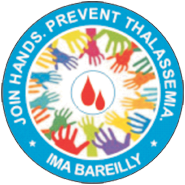 आपकी अज्ञानता ही आपके बच्चे को जीवनभर रक्त चढ़वाने पर मजबूर कर सकती है।
आपकी अज्ञानता ही आपके बच्चे को जीवनभर रक्त चढ़वाने पर मजबूर कर सकती है।
1. Thalassaemia is a hereditary disease in which defective hemoglobin is produced which is quickly destroyed in the body.
Thalassemia is primarily of two types:
- Thalassemia Major
- Thalassemia Minor
2. Thalassemia major patients cannot synthesise viable RBCs in their body. These patients depend upon regular (every 3-4 weeks) blood transfusions periodically throughout their lives for survival.
3. Thalassemia minor persons possess disease causing thalassemia gene in their body but do not suffer from the disease. These persons are capable of transmitting this defective gene to their offsprings. They lead apparently normal lives and just suffer from mild anaemia.
EMOTIONAL AND FINANCIAL BURDEN:
4. Due to repeated transfusions, there is iron overload in the patient’s body. This excess iron needs to be removed from the body by drugs which are very costly. Even after taking drugs regularly there is long term organ damage due to iron deposition in heart, liver, lung, kidney etc. This is the reason such patients have limited life span despite best care. Another risk is exposure to transfusion related infections like Hepatitis “B”, Hepatitis “C” and HIV. When there is a thalassemia-major child in the family there is intense emotional burden on the parents.